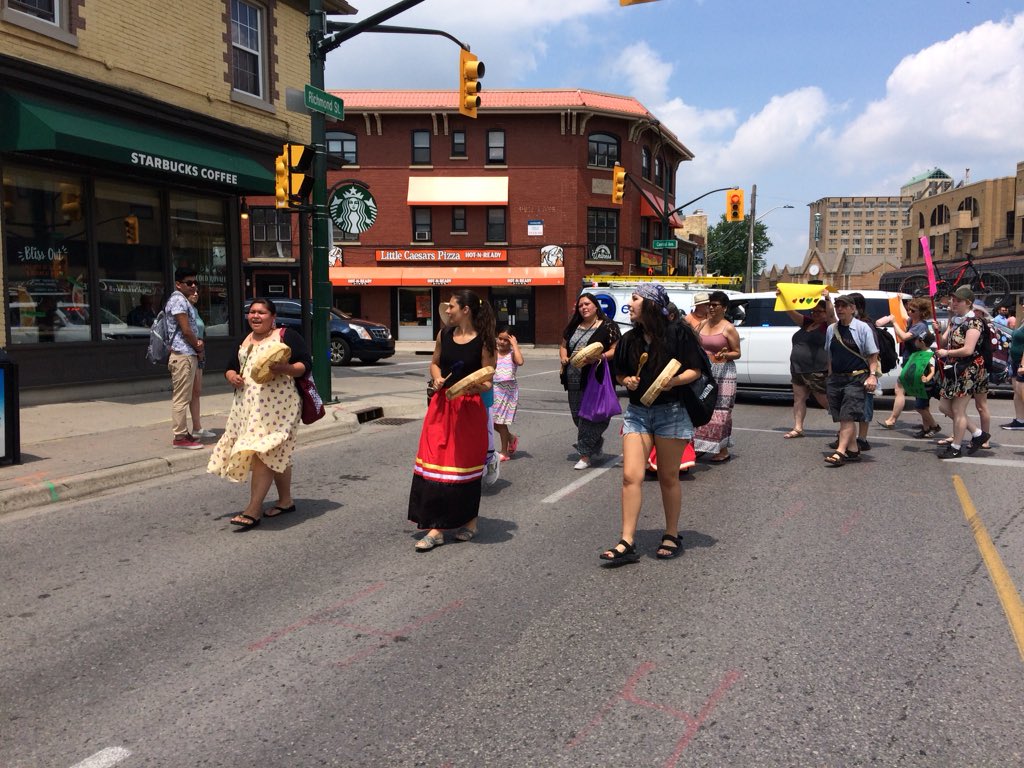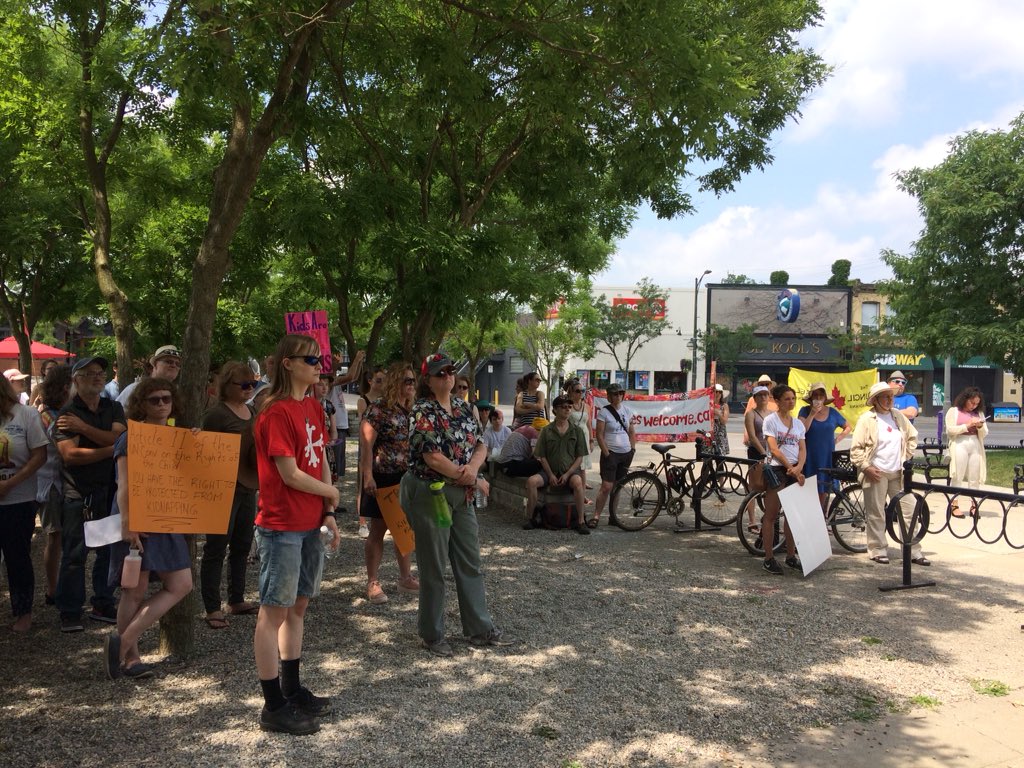On a sweltering hot Saturday afternoon, Londoners gathered in Victoria Park to demand the Trump administration reunite families, and end detention at the U.S.-Mexican border.

London was among more than a dozen Canadian cities protesting in conjunction with activists across the United States.
“There are many echoes in relation to my graduation research in terms of the rise of right-wing populism in the United States, and the impact that has on marginalized populations,” said March Against Family Separation organizer, Mandy Penney.
“We can look to the separation of families in Nazi-occupied Europe as an example of today’s immigration policies in the United States,” Penney said.
“The trauma these families suffer, particularly the children, is immense,” she said.
President Donald Trump signed an executive order last week that ended the large-scale practice of splitting up parents and kids – his administration will now detain families together. There’s also the question of the more than 2,000 children separated from their parents. Accounts from immigration advocates and migrants within detention say the process to reunify families has numerous problems, with little to no action being done.

Get breaking National news
While the world keeps an eye on the United States and how those issues progress, Canadian protesters raised concerns regarding some of Canada’s immigration policies as well.
“The separation of children in the United States is very similar to what Canada did to indigenous people, and we know that kind of trauma stays with a child throughout their entire lives,” said medical officer of health for Middlesex-London health unit, Dr. Christopher Mackie.
“The truth and reconciliation commission looked at what this country did through residential schools and the 60s scoop, and identified that all the criteria for genocide were met by how Canada handled indigenous people,” he said.
According to the March Against Family Separation Facebook page, they demand Canada condemn the U.S.’s “exclusionary and unjust detention and deportation policies,” scrap the Safe Third Country Agreement and scrap the Designated Country of Origin list. In addition, protesters want to see Canada end it’s own immigration detention and deportation policies, as well grant permanent resident status to all undocumented and migrant people in Canada.
“It’s really, really hard to see what’s happening, especially as a parent,” Dr. Mackie said.
“As a parent, when I think about families being separated indefinitely, where the children don’t even speak English to understand what’s happening and often come from a culture where parents disappearing means they’ve been murdered by the state or militia group, it’s devastating to see this happening in a country that has the resources to support these people.”




















Comments
Want to discuss? Please read our Commenting Policy first.